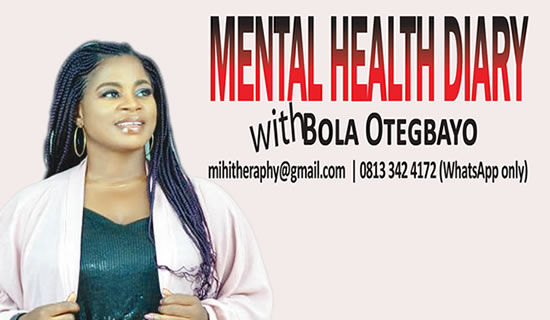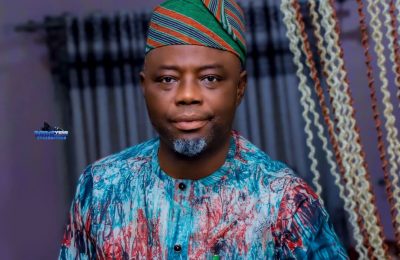

A few days ago, my older brother shared a touching video with me, and a few friends who were well aware of my interest in music therapy for the elderly also sent the same video. When I shared the video on my WhatsApp status, somewhat to my surprise, several people commented that they had seen it and almost shared it with me. It was then I realized the video had gone viral. Because of the video’s widespread reach, talking about dementia will now be simpler as many people can connect to the topic I’ll be discussing today.
In the footage, a senior citizen with dementia is seen wielding her walking stick at other passengers on the bus. Being aware of the woman’s condition, her carer approached her with love and attempted to calm her. But the woman’s devastating response was, “I don’t know you!” The carer put a call through to her daughter, but the old woman denied knowing her daughter. It’s not her fault, memory loss is one of the main symptoms of dementia. But then, something amazing happened. While she was still yelling at her daughter over the phone, saying, “I don’t know you!” the daughter started singing a familiar favorite song. The song resonated with her. Gradually, the old woman’s attitude changed, she relaxed and began to sing along, she also held the caregiver’s hand affectionately. The video was quite emotional.

This week on my Mental Health Diary, we will discuss dementia, with an emphasis on how it affects memory and cognitive function, how crucial early detection is, and how to distinguish dementia from normal aging. We will also explore ways to manage dementia symptoms, offering important information and understanding to individuals impacted by the illness. Additionally, we aim to raise awareness about this disease.
Quite a number of people find themselves in this predicament without knowing what it is beforehand. I once heard from someone who said that after her mother was diagnosed with dementia, she began searching for information on Google to try to understand the diagnosis and, most likely, figure out how to support her dear mother. Many people are unaware of the symptoms when they encounter them, and prompt diagnosis could help control the condition and slow its progression.
Now let’s dive into the topic. One may ask, what is dementia? It’s a broad term used to describe a deterioration in cognitive function that impairs a person’s capacity to carry out daily tasks and lead a normal life. It primarily affects memory, reasoning, problem-solving, language, and the ability to carry out daily tasks.
Dementia is commonly associated with old age; however, it can affect people of all ages and is classified into two types: early-onset and late-onset dementia. The most prevalent type is late-onset dementia, which commonly affects persons aged 65 and beyond. The risk of dementia grows considerably with age. Early-onset dementia, also known as young-onset dementia, affects adults under the age of 65, with cases occurring in individuals as young as in their 30s or 40s. However, it is less common than late-onset dementia. Dementia is frequently misdiagnosed because it is thought to be an ailment of the elderly. Early-onset dementia can be especially upsetting because it affects people who are still working, raising families, or actively involved in their communities.
The most common type of dementia is Alzheimer’s disease, a progressive neurodegenerative disorder and the most common cause of dementia. It primarily affects memory, thinking, and behavior. The symptoms develop gradually and worsen over time, eventually interfering with a person’s ability to carry out daily tasks. Although dementia has no cure, its symptoms can be treated and managed to improve quality of life.
Recognizing early indicators of dementia is critical for effective intervention. Early diagnosis and treatment can help delay the progression of dementia and maintain cognitive function for extended periods. Some common early indicators include memory loss, such as regularly forgetting recent events, names, or key dates, or misplacing items and not remembering where they are.
It may also become difficult to execute basic tasks, such as cooking or handling finances. In extreme cases, people may forget fundamental duties like showering or brushing their teeth, making it difficult to maintain personal hygiene. Language impairments are another early indicator of dementia, frequently manifesting as trouble finding the right words or following conversations. Mood and behavior changes, such as unexplained mood swings, aggression (as seen in the woman in the video), anxiety, depression, or withdrawal from social activities, are also possible. Additionally, confusion regarding time or place, such as becoming disoriented in familiar surroundings, is a common sign.
You may ask, how do I differentiate normal aging from dementia symptoms? While cognitive decline is a normal aspect of aging, such as forgetting names or misplacing items, dementia involves a far more severe decline that interferes with daily life. Normal aging should not be mistaken for dementia. When cognitive deterioration begins to impair a person’s capacity to function independently, it is often indicative of dementia.
Managing dementia requires a combination of medical, psychological, and supportive care approaches. Medications can help manage symptoms, especially in the early to moderate stages of dementia. However, these treatments do not cure dementia, but they can help manage symptoms and improve quality of life.
Music therapy is another helpful approach to dementia management. As seen in the video, when the daughter sang a familiar favorite song over the phone, it resonated with her mother and calmed her. Music can stimulate memories and emotions, bringing comfort and improving the well-being of individuals with dementia.
Music therapy is a therapeutic strategy that uses music to address people’s cognitive, emotional, social, and physical needs, especially those with cognitive decline and dementia. It is an evidence-based practice that can be particularly effective for older adults experiencing these conditions. Music can stimulate memory, aid in memory retrieval, and occasionally allow persons with dementia to recall personal experiences more vividly. Music activities such as singing or playing an instrument can activate brain regions associated with memory, attention, and executive function.
Next week, we’ll explore in depth the causes of early and late-onset dementia, which are closely related to the predisposing factors that raise the likelihood of developing the condition. We’ll talk about how genetics, lifestyle, and other health conditions contribute to the onset of dementia at various stages of life. Additionally, we’ll cover more ways to manage the symptoms, explore treatment options, and highlight the role of early intervention.
We’ll also talk about important support networks for carers, as caring for people with dementia can be emotionally and physically exhausting, necessitating specialized resources and assistance. Join me next week for another informative episode of my Mental Health Diary, where we’ll explore dementia in depth and uncover valuable insights for caregivers and loved ones.
READ ALSO: Dangote refinery: No guarantee of lower fuel prices — NNPCL








